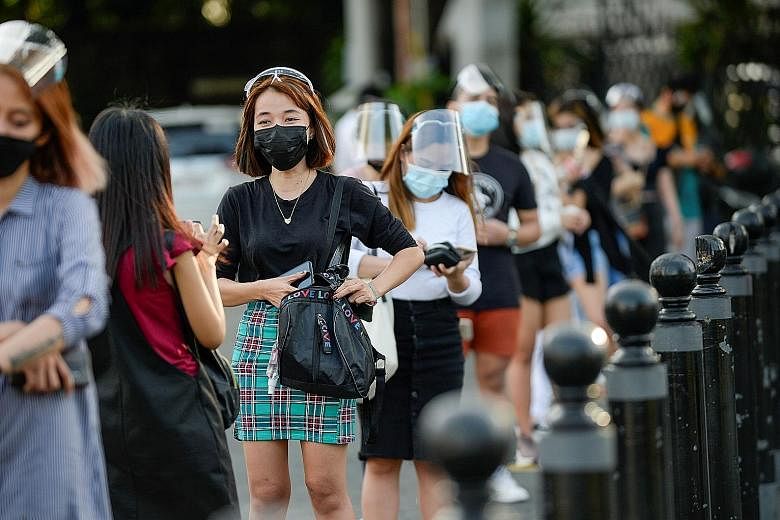President Rodrigo Duterte yesterday rejected his own Covid-19 pandemic task force's calls to ease quarantine curbs to revive a stalled economy, unless the government can get a vaccine roll-out going.
"No vaccine roll-out, no MGCQ," Mr Duterte's closest aide, Senator Bong Go, said in a text message to reporters, referring to a modified general community quarantine that would have lifted many of the restrictions that have been in place since a sweeping three-month lockdown early last year.
Mr Duterte's spokesman Harry Roque later said in a statement that the President "gives higher premium to public health and safety" over the economy.
But with a floundering vaccination roll-out, it is uncertain when curbs can be relaxed.
The country's Food and Drug Administration yesterday announced that it had allowed for emergency use a vaccine manufactured by China's Sinovac.
Sinovac has pledged to donate an initial 600,000 doses of its vaccine, but it is uncertain when those will arrive. A spokesman for the Health Ministry said "specific details as to shipment dates and volume are currently being finalised".
Sinovac has committed to ship some 25 million doses in total this year to the Philippines, at two million a month. But again, there is no supply deal that guarantees delivery dates for these jabs.
The Philippines had been expecting delivery of more than 100,000 doses from Pfizer this month.
But that shipment was delayed by a demand from the company for an indemnification law to insulate it from class action suits or government inquiries that could arise from adverse effects with the use of its vaccine.
Sinovac, on the other hand, made no such requirements, according to Mr Roque.
But with an efficacy rate that swings broadly from 50.4 per cent to 91.2 per cent for Sinovac, regulators said they were not recommending the vaccine's use for health workers and those who are 60 and older.
That complicates the Philippines' vaccine roll-out, as hospital staff and the elderly are supposed to get inoculated first.
A task force overseeing the government's Covid-19 efforts had advised Mr Duterte to further ease restrictions, even as experts report a slight uptick in cases in the capital and officials uncover more infectious coronavirus variants.
That would have meant allowing more people in churches, gyms, conference halls, and Internet and gaming arcades. Cinemas can reopen, concerts may be staged again, and more workers can go back to their offices.
"I think we're ready because after one year, we have kept our infection rate manageable, which means it does not overwhelm the healthcare system," Health Secretary Francisco Duque told CNN Philippines yesterday.
He said the decision to further relax curbs meant to contain the coronavirus' spread was intended to revive 95 per cent of the economy.
But public health experts said it might be too early to relax curbs, as Metro Manila has been seeing more Covid-19 infections.
University of the Philippines-based Octa Research Group on Sunday warned that Metro Manila could see infections rise to 2,400 a day if restrictions were lifted prematurely.

